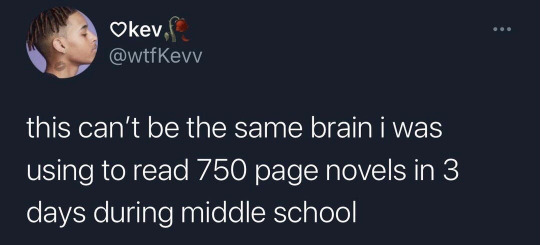writeblr // emily // 23 // melbourne // adhd-pi // og fantasy and hp fanfiction // primary wip: road to the empyrean // asks open
Don't wanna be here? Send us removal request.
Text
Tips for Writing a Difficult Scene
Every writer inevitably gets to that scene that just doesn't want to work. It doesn't flow, no matter how hard you try. Well, here are some things to try to get out of that rut:
1. Change the weather
I know this doesn't sound like it'll make much of a difference, but trust me when I say it does.
Every single time I've tried this, it worked and the scene flowed magically.
2. Change the POV
If your book has multiple POV characters, it might be a good idea to switch the scene to another character's perspective.
9/10 times, this will make the scene flow better.
3. Start the scene earlier/later
Oftentimes, a scene just doesn't work because you're not starting in the right place.
Perhaps you're starting too late and giving too little context. Perhaps some description or character introspection is needed before you dive in.
Alternatively, you may be taking too long to get to the actual point of the scene. Would it help to dive straight into the action without much ado?
4. Write only the dialogue
If your scene involves dialogue, it can help immensely to write only the spoken words the first time round.
It's even better if you highlight different characters' speech in different colors.
Then, later on, you can go back and fill in the dialogue tags, description etc.
5. Fuck it and use a placeholder
If nothing works, it's time to move on.
Rather than perpetually getting stuck on that one scene, use a placeholder. Something like: [they escape somehow] or [big emotional talk].
And then continue with the draft.
This'll help you keep momentum and, maybe, make the scene easier to write later on once you have a better grasp on the plot and characters.
Trust me, I do this all the time.
It can take some practice to get past your Type A brain screaming at you, but it's worth it.
So, those are some things to try when a scene is being difficult. I hope that these tips help :)
Reblog if you found this post useful. Comment with your own tips. Follow me for similar content.
53K notes
·
View notes
Photo

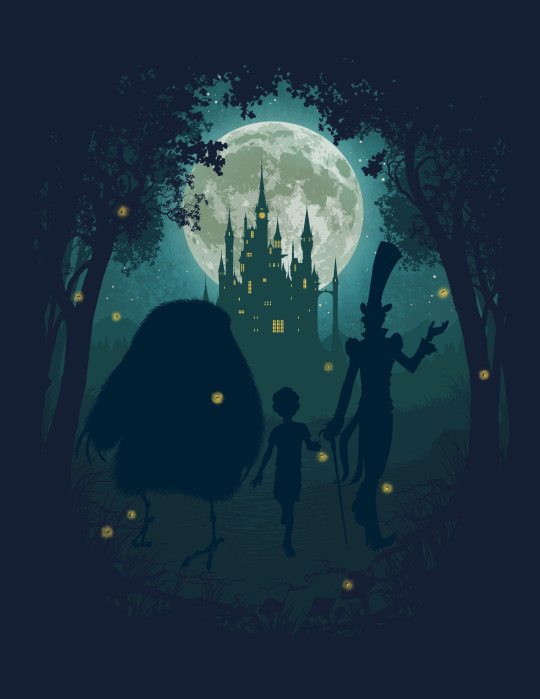


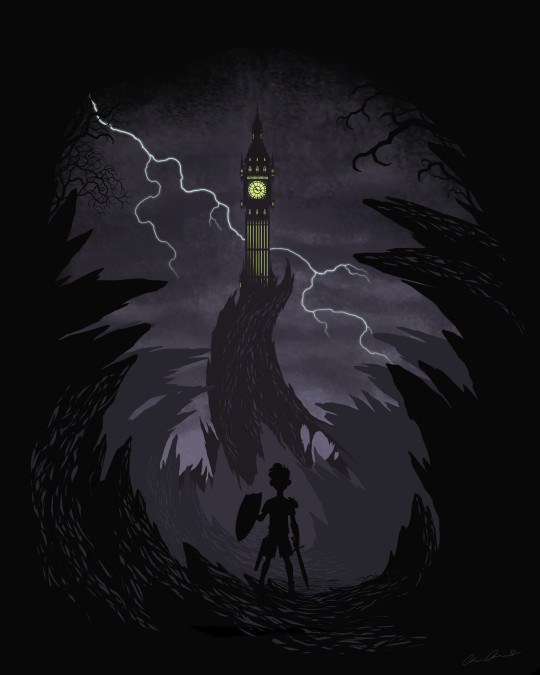

Chris Ables - https://www.linkedin.com/in/chrisables - https://twitter.com/chrisablesart - https://www.chrisablesart.com - https://www.facebook.com/chrisablesart - https://www.instagram.com/chrisablesart - https://www.pinterest.es/chrisablesart/boards
5K notes
·
View notes
Text
#223: Consistency Is Key

Most people overestimate what they can get done in a day and underestimate what they can do in a year. Our brains have trouble grasping the power of sustained effort over extended periods — long-term thinking doesn’t come naturally to us. That’s why learning how to be consistent is so valuable.
Writing a book is the perfect example. It’s overwhelming to even think about the amount of work it takes to write a 120,000-word book. How can someone even do that?
I went to an event with Jessie Burton at the London Library a few years ago. She mentioned that she went through 17 drafts when working on The Miniaturist. I remember sitting there, thinking about my struggle to get even a first draft done. How can you go through 17 drafts? That’s insane!
It is insane when you look at it from the perspective of someone who isn’t serious about being consistent. You’ll never be able to do that if you only write when you feel like it.
When you’re willing to be consistent and show up every day, things look a lot more realistic. Sure, it’s still a lot of work. But you can trust yourself to get to the finish line eventually.
120,000 words? If you can write about 500 words per day on average, you’ll be done in about eight months. However, this only works when you’re consistent.
It took Jessie four years to finish The Miniaturist.
Consistency Is Hard
As you can imagine, being consistent isn’t easy at all. Otherwise, we’d all be rich and famous with flawless diets and exercise regimes.
Staying consistent is a constant struggle for almost everyone. Motivation comes and goes. Sometimes, life is simple. Other times, it’s complicated. You may have doubts about whether you’re doing the right thing. Or you may be distracted by the whirlwind of things fighting for your attention.
In the vast majority of cases, consistency is a trade-off. You’ll have to give some things up so you can be consistent.
How Can You Be More Consistent?
I could give you the 9 Proven Ways to Be More Consistent And Achieve Everything You Ever Wanted spiel, but we all know how helpful that is.
I wish I had a definitive answer, but I don’t. I struggle with this as much as anyone. I’m always working towards being more consistent. I know how valuable showing up and doing your work day after day can be.
One thing about consistency is that you don’t need money or any fancy equipment to do it. There’s no special talent and no secret. You don’t have to get a degree. You don’t need anyone’s permission. You can start working towards being more consistent today.
Want to achieve something that seems superhuman? Figure out how to be consistent.
About the Author
Hi, I’m Radek 👋. I’m a writer, software engineer and the founder of Writing Analytics — an editor and writing tracker designed to help you beat writer’s block and create a sustainable writing routine.
I publish a post like this every week. Want to know when the next one comes out? Sign up for my email list below to get it right in your inbox.
SUBSCRIBE
(I won’t spam you or pass your email to a third party. You can unsubscribe at any time.)
Past Editions
#222: Passion and Grind, November 2021
#221: Going From Zero to One, November 2021
#220: How to Make Your Writing Compound, November 2021
#219: 7 Benefits of Doing NaNoWriMo Even If You Don’t Win, October 2021
#218: The Best Writing App for NaNoWriMo, October 2021
164 notes
·
View notes
Text

Ready to edit, format, or publish your book? We offer editing and coaching services! Send a DM or go to https://kiingo.co/services
.
.
.
I’ve never really been one to sit down and fully plan where a story is headed. I have a rough outline of it in my mind, but it’s ever-evolving and the only way I document the changes I come up with is through a very messy and highly unorganised system of notes on my phone.
In the world of modern day Bookstagram trends, this halfway ‘planning-but-not-quite-planning’ approach would make me a plantser.
What’s what.
….Just about now, you might be going: ‘erm, a what, now??’
Let us go back to basics, shall we?
One fashionable debate amongst the writers’ community lately has been about planners and pantsers.
Planners are writers who—as the name suggests—plan out their entire novel and put time and effort into mapping out their story before they write it.
Pantsers, on the other hand, are those who pretty much just wing it, and start writing without a plan, and whose plot line sort of happens as they go.
And because we collectively both love a good label and, at the same time, always like resisting being fitted into boxes, there is now a third label (…I know, ironic, isn’t it?) for those of us who aren’t quite planners, and not quite pantsers either, but fall somewhere in the middle: plantsers.
Why plotting is important.
With that in mind, one is bound to ask: is one better than the other?
Of course not. As with everything that’s to do with the creative process, it’s deeply tied to personal preferences. And that means that whatever category you fall into is the one that’s best for you. If you want to plot, plot to your heart’s content! If you want to take a random stroll down making-things-up-as-you-go lane, stroll away! If you want to dip in and out of one way or the other, by all means, do! Each to their own.
…Or so I used to think.
As I started gaining more writing experience, and especially since I started working with writers to polish their manuscripts, I’ve come to realise these planner-pantser-plantser distinctions really need a little bit of nuancing.
My take on it is that you can give yourself the luxury of working howsoever you want—plan it, pants’ it, plants’ it, whatever takes your fancy… as long as you’re working on your first draft.
The first draft is meant to be messy. It’s meant to be imperfect, incomplete, and oh-so wonderfully flawed. And for that reason, I don’t really think it matters how you approach it. The one and only goal with the first draft is purely and wholly to get it done. The first draft is a means to and end, if you will, so that you have the material you need to start building the story you want to tell.
But once that’s done, when the goal is no longer to clock words on a page but to polish those words and the way they come together in a convincing plot line, believable character arcs and enticing build-ups, then I no longer believe you can get away with a full pantser approach.
There are so many parts to writing a strong book: strong plot lines and sub plot lines, foreshadowing convincingly to a variety of different reveals, creating several character arcs that run side by side, maintaining tension throughout, world-building (whether it’s a fantasy land or a very realistic modern setting), and so on.
Get one of these elements not quite right, and you take away your book’s chance of being a masterpiece. Get a couple of these a little off-balance, and you run the risk of the reader putting it down, never to pick it up again. Get half of them wrong… You get the idea.
For a writer to be able to follow all of these elements and execute on them convincingly and well, I strongly believe that a certain level of planning and mapping is required—unless (unlike me) you possess incredible mental processing powers that allow you not only to keep track of each and every one of these bits to perfection, but also to go about your daily life without fail, in which case, kudos to you, I bow to your greatness, you may stop reading this article.
Mapping out your plot to makeit bulletproof.
Before we go on, let me be clear: YES, it’s ok to be a pantser or a plantser! I oscillate between the two myself. But I do believe that it’s doing a disservice to your story not to give it more structure once you’re past the first draft stage.
A plot that’s full of holes, a character that’s unrealistic or bad foreshadowing can be the death of a story. That’s the simple truth.
Think about everything that makes up a story as its own line (plot, characters, tension, foreshadowing, setting or world-building etc.). Now imagine each of these has their own individual sub-lines (one for the main plot and one for each sub-plots, one for each characters etc.). That’s a lot to keep on top of, and if any of them falls short, it robs the reader of a chance to get excited about the story you’re telling. It steals away an opportunity to keep up the kind of tension that makes a reader turn the next page, and the next, and the next…
If you map out every single one of those elements, however, you can make sure you exploit them all to their full potential, and it’ll highlight any areas that might have fallen to the side-lines.
Does that sound like a lot of work? Of course, it does! Who said writing was easy? The question you have to ask yourself is whether it’s more important to you to release a book—any book— or to release the right book—the one that will get readers excited about your work and come back wanting for more.
All that’s not to say that you can’t give yourself flexibility in your approach. There are a million ways of going about it. You can still get creative and spontaneous with your craft. All I’m saying is that at some point in your process you have to accept that you’ll need to be methodical to ensure you cover all bases.
21 notes
·
View notes
Text
Worldbuilding stuff:
If your story has an idle nobility class, their culture shouldn't just be different from the general population, it should be an over-the-top caricature of the common folks' culture. Whatever the population generally agrees is ideal, fair, admirable, or good, the nobility will take into stupid extremes.
Contrary to the beliefs of many, people are actually not at all happy when they're idle - a person with no assigned task or duty will go out of their way to come up with one. And all around the world, whenever there's been an upper class with nothing to do, they've started to compete with each other over stupid shit, but always stupid shit that the culture they live in considers positive qualities.
From the noblemen in Europe challenging each other to a possibly lethal duel over insulting someone's hat, to a Chinese noblewoman being moved to tears by the beauty of someone's calligraphy, bored elites everywhere have always wanted to outdo each other in their expressions of possessing all the noble traits that this culture in particular holds in value.
You can, and should, use this as a way to highlight what the actual values of this society is. In a setting where being religious is held as an admirable trait, there is nobility coming up with new ways to one-up each other in their expressions of worship. Society that values art and music will have them competing over who hires the most artists, and who employs the most talented musicians. Aggressive, war-like people will have fuels to the fucking death over a stupid hat.
Literally anything can be competed in, and bored people with far too much time and money in their hands will become competitive over the most ridiculous things. This isn't just an useful tool in worldbuilding, but also a fun one.
38K notes
·
View notes
Text
I just had a thought.
Writing is like drawing. They're both art, yeah, but it's more than that.
When I draw, I dont try to make every stroke, ever pencil line perfect from the start. I start with a rough sketch. I draw shapes. It doesn't look like the thing I want it to be. But I keep going. The shapes start coming together, and little by little, it looks like a dragon (or whatever it is, but it's probably a dragon because that's pretty much all I draw)
That's what first drafts are. They're sketches. They can be messy. They don't need all the details. They can have unclear, imprecise phasing. You can write PLACE because you haven't decided what to call the place where your characters live.
And once you're done your sketch, you can add detail, and line art, and colours. And then you have a pretty picture! (Or a novel =))
9 notes
·
View notes
Text
writing can’t be that hard. all it is is just putting words in front of each other, right?
81K notes
·
View notes
Text
Hot take but I don’t think “Hetero” couples in fiction are boring actually I just think they’re boring because we see the same m/f couples every single time.
Allow me to elaborate:
Usually every m/f couple we see in media consists of two conventionally attractive, young, skinny, allosexual, cishet, gender conforming, often white people. And you can always see the relationship coming a mile away.
Imagine how much better it would feel if you saw more of THESE kinds of m/f couples in media:
Fat characters involved in the relationship, and not made into a joke
Disabled characters involved in the relationship, and not made into a joke
A man happily in love with a gnc or masculine woman
A woman happily in love with a gnc or feminine man
Bisexual or pansexual men and women in love with the opposite sex (and bi for bi, Pan for Pan couples)
A man happily in love with a trans woman
A woman happily in love with a trans man
Trans for trans m/f couples
Asexual and gray-sexual people in romantic relationships and being respected in those relationships
Two middle aged people entering a new relationship, with the same attention and slow burn and tension as any young pairing (because middle aged and elder people have love lives too, and can fall in love again even if they’ve been married before!! See Kane/Abby in the 100.)
More POC x POC relationships!
A man who stays at home and takes care of kids x a working woman who isn’t criticized for not being home enough
Supportive parents to queer kids
Punk/alternative/goth m/f couples and parents (bc I just think that’s cool)
Couples who get together and then realize they’re better as friends, and have a healthy breakup while staying super close (and not creating secret drama)
Neurodivergent people involved in the relationship (adhd/autistic men and women infodumping to their supportive partner... happy stimming after a cute interaction with their crush.. it’s just so good) and not made into a joke or infantilized!
BUFF STRONK WOMAN x LIDDOL MAN VERY IN LOVE WITH HIS WIFE
People who aren’t conventionally attractive in a loving relationship, and there isn’t any drama or weird side plot about “learning to love someone for what’s on the inside!!”
and so many more I could think of!!!
Just something to think on. (And remember, not all m/f couples are “hetero”. If you’re still saying “ew heteros!!” every time you see a straight couple, now is the time to stop.)
35K notes
·
View notes
Text
I want to write. I have ideas. I open document. I type four of the worst sentences ever created in the english language. I daydream the rest of the scene. I close document.
173K notes
·
View notes
Text
Sometimes when I’m writing, I feel like I’m pushing a baby out.
1 note
·
View note
Text
reblog and put in the tags the last book you read, the book you’re currently reading and the next book on your list
#last read: the poppy war#currently: the lies of locke lamora#next: the invisible life of addie larye maybe?
18K notes
·
View notes
Text
マスク詐欺 (masuku sagi) or, literally, mask fraud.
This is when an individual looks really hot with a mask on, then they take off their mask and it’s like oh you’re just average-
66 notes
·
View notes
Photo
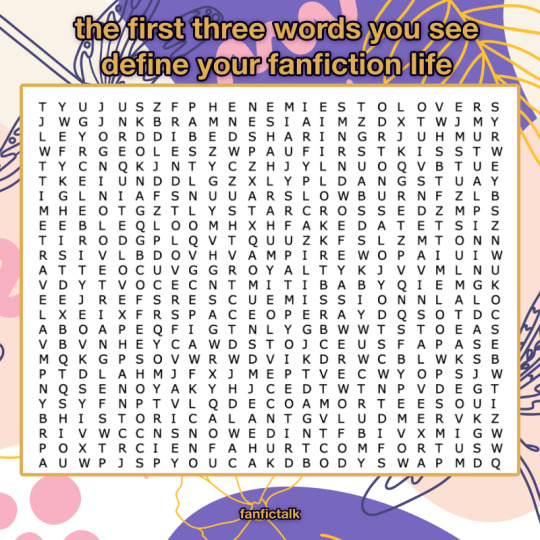
what’s your fanfic life like?
31K notes
·
View notes
Photo
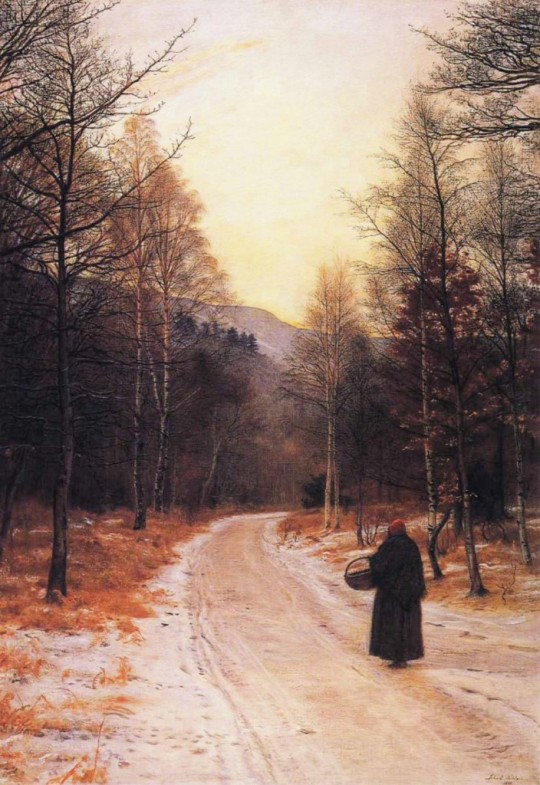
Glen Birnam, 1891, John Everett Millais
Medium: oil,canvas
https://www.wikiart.org/en/john-everett-millais/glen-birnam
351 notes
·
View notes
Text
#215: Writing for the Right Reasons

‘Don’t write for fame or money’ is a common piece of advice that writers who’ve made it give to the aspirants. Sure, but what’s wrong with fame and money?
Clearly, it is possible to make money from writing as millions of writers around the world do. A lot fewer are famous, but it also isn’t impossible to be known for what you write. Doesn’t everyone want to succeed in what they do?
As an adult, you have to eat and live somewhere — preferably not your mum’s house or the street. Who wouldn’t want to earn a living from writing?
I’m also pretty sure that the vast majority of successful authors didn’t just stumble into success while writing casually for kicks. They were determined and worked insanely hard. So what’s up with this 'don’t write for fame or money’ thing?
Honestly, it made me a bit nervous when I kept reading this early on. I would like to earn a living through my writing eventually. Does it mean that I’m in it for the wrong reasons?
A few years in, I realised that the advice is, in fact, genuine and well-intentioned. It’s just difficult to see the nuance behind it.
It doesn’t mean that you shouldn’t want fame and money. There’s nothing wrong with wanting to succeed. The problem is only wanting those things.
Lots of people like the idea of being a writer more than actually writing. That in itself isn’t a problem — you can do whatever you want, and it isn’t anyone’s business whether you’re writing to change the world or to get laid.
The problem is that if your only motivation is that shallow, writing is a complete waste of time. You’ll have to grind way harder and sacrifice a lot more than you think to reach fame and wealth through being an author. The shallow things won’t motivate you to push hard enough and make those sacrifices to stand a chance. You will quit too soon.
The Right Reasons to Write
The good news is: you don’t need a grand vision of how you’re going to change the world with your writing or write for any noble reason whatsoever.
You just have to write about something that you care about. That’s it. Find something that you’re passionate about and write about that. What strong opinions do you have? What do you spend your days doing or thinking about? What makes your blood boil? What makes you happy?
That will lead you to people who care about the same thing. Your readers will be people who you can connect with. Writing will still be difficult, but you will be writing about your passion — that makes all the difference.
If you don’t have an obsession or something you feel strongly about, that’s fine. Try some things out. Figure out what gets you excited. Passion isn’t something you just have, you can develop it.
Writing is just a means to an end — a form of communication. You’re sharing ideas, emotions and stories with your readers.
Instead of being passionate about writing, write about your passions. The rest will take care of itself.
About the Author
Hi, I’m Radek 👋. I’m a writer, software engineer and the founder of Writing Analytics — an editor and writing tracker designed to help you beat writer’s block and create a sustainable writing routine.
I publish a post like this every week. Want to know when the next one comes out? Sign up for my email list below to get it right in your inbox.
SUBSCRIBE
(I won’t spam you or pass your email to a third party. You can unsubscribe at any time.)
Past Editions
#214: It Doesn’t Count If You Don’t Finish It, September 2021
#213: How to Be a More Disciplined Writer, September 2021
#212: How to Turn an Idea into a Story, September 2021
#211: Writing Every Day, September 2021
#210: Ed Sheeran on Writing, August 2021
254 notes
·
View notes
Note
I’m struggling to decide between two plots I have in mind for a short story contest. How do I know which to choose to expand on?
You don't. Pick the one that feels the most fun to write.
703 notes
·
View notes
